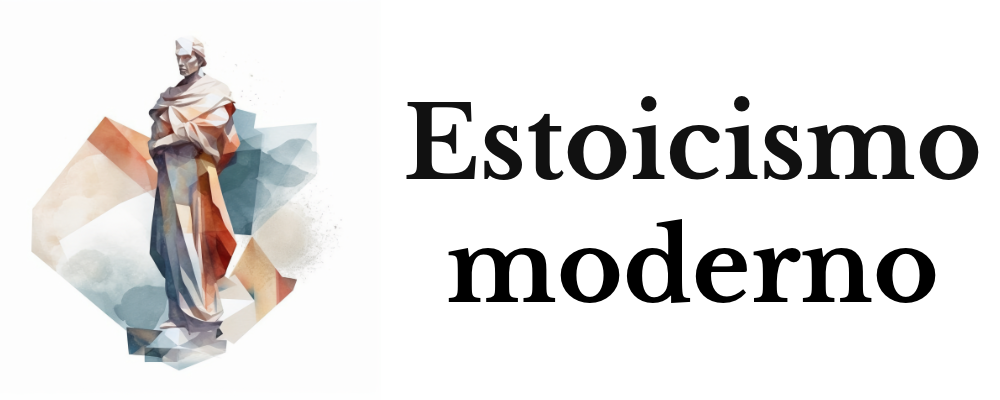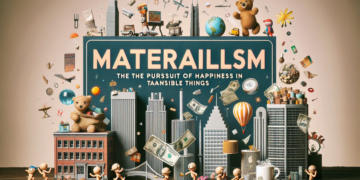Nihilism in Popular Culture: Reflections and Contrasts with Stoicism
At the crossroads of popular culture, nihilism looms like a heavy fog over the souls of today. TV shows, movies, and literature weave stories steeped in despair and the belief that all is in vain. But is nihilism the inevitable reflection of our time, or is there an ancient path that still resonates with the promise of meaning and personal determination?
Stoicism, which bloomed in the thoughts of Zeno of Citium, Seneca, Epictetus, and Marcus Aurelius, offers a fortifying counterpoint. These philosophers did not promise a garden devoid of thorns, but the strength not to be harmed by them. “It is not what happens to us, but our thoughts about what happens that hurt us,” Epictetus claimed. In this analysis and contrast between today’s nihilism and the stoicism of old, we will seek understanding and practices to navigate the tangle of existence.
Within popular culture, nihilism often manifests in characters and narratives that deny the existence of any intrinsic meaning in life, revealing an emptiness that seems to mirror modern disconnection and information saturation. Series like “True Detective,” with its Rust Cohle articulating a purposeless cosmos, capture this essence with tones of desolation. However, though they may be artistically intriguing, these nihilistic expressions rarely offer solace or guidance to viewers and readers.
In the face of this current, stoicism reclaims purpose and order, though not one inscribed in the stars but in individual reason and virtue. “Everything that irritates us about others can lead us to an understanding of ourselves,” pointed out Marcus Aurelius in Meditations. This introspective mirror reveals our power to forge meaning, even when external structures crumble.
In the contemporary scene, how can we apply this wisdom? Consider the omnipresence of social media and its constant flow of comparisons and unattainable ideals. Stoicism invites us to discern between what is in our power to change and what is not, freeing our efforts from the tyranny of external expectations. “Only concern yourself with what depends on you,” Epictetus instructed.
Just as stoicism faced the adversities of antiquity, today it can help us confront the limitations and inevitable failures of modern life. A lost job, a broken relationship, the onslaught of a pandemic: stoicism does not sell us an illusory ideal but equips us with the resilience to persist. “Do not be distressed, something outside your control has happened. It is nothing,” we would repeat with Seneca.
In living alongside the nihilism of popular culture, stoicism offers us a shield made of ataraxia, undisturbed peace in the face of external whims, and gifts us the sword of prohairesis, the conscious and moral choice. The clamorous music of nihilism may be deafening, yet, as Seneca well said: “The sound mind must be impermeable to all external bad and centered within itself.”
Today’s youth, faced with the challenge of climate change, socioeconomic inequality, and an opaque future, can find in stoicism not just consolation, but agency. “Do not wish that things happen as you want, but wish things to happen as they do and your life will flow well,” Epictetus advised. Here, self-determination and personal growth become acts of rebellion against apathy and despair.
Moreover, stoicism provides practical techniques: morning and evening reflection, the examination of our reactions, and the premeditated visualization of adversities (premeditatio malorum) become tools for building internal fortitude. They are exercises that awaken us from nihilistic inertia and connect us with the possibility of a life with intention and meaning.
Nihilism in popular culture unravels a plot without destiny, it might be a seductive contemplation, but a fallacious one. Stoicism, on the other hand, insists on the presence of a helm in the hands of each individual. Our journey may be uncertain, the storms may threaten to capsize our ship, but we are called to navigate with wisdom and virtue.
In conclusion, against the nihilism showcased in the displays of popular culture, the stoic spirit urges us to choose a life with purpose. Not one that is given to us, but one that we ourselves forge. “It is up to you,” remind us the ancient echoes from the Stoa, “to mold the character that defies the winds of nihilism.” Make your life valuable, make it your great work. The call to action is made, the stage of the world awaits you, not with a pre-written fate, but with the slate open for you to inscribe with your own words. Marshal your forces, oh human spirit, and carve out a life worthy of the stars from which we came and to which we are destined to return.









